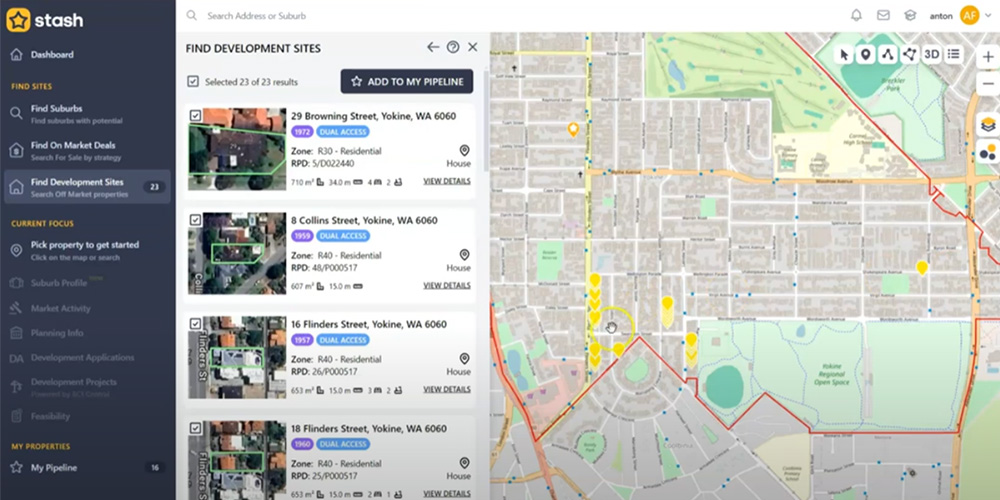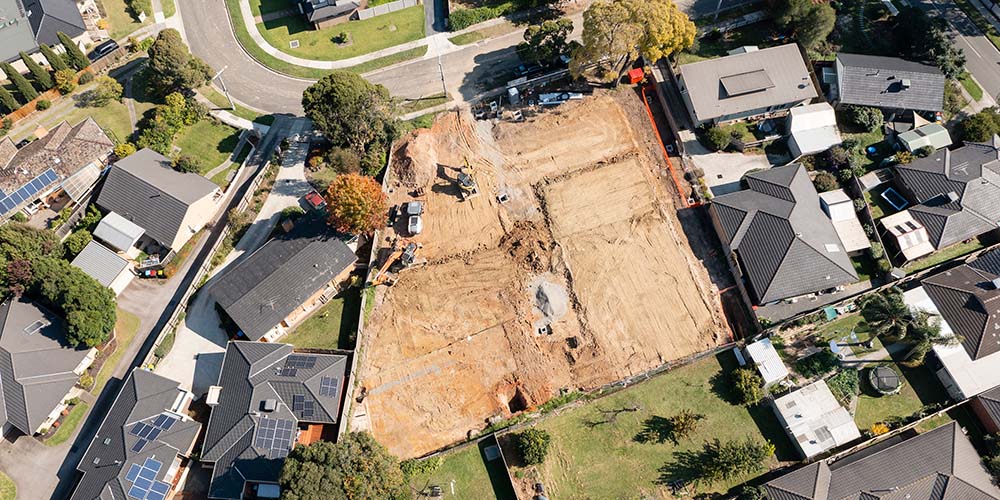
Is a Residential Property Syndicate a Good Idea?
Should I use a property syndicate to fund a project?
What is a property syndicate? is it smart to get involved in one? Should I form one?
Lots of people getting into subdivisions and property development will stumble across the concept of a property syndicate some point, and will usually be intrigues by the idea. It can appeal because it seems to be able to provide them with with an apparently low risk entry point of involvement into a development, the capacity to target projects that they couldn’t afford to tackle by themselves, or allow them to fund their own deals with very little of their own money. This article will explore syndicates and the possibilities pitfalls you need to aware of, either as an investor or instigator. They can seem like a good idea, but before you get involved in or start one you need to understand that there are important legal, taxation and lending ramifications with property syndicates.
In the current financial and lending climate in Western Australia, it has been very topical for people to investigate joining or forming property syndicates. Perth has been a tough market for developers- good development sites and finance have been hard to come by. Because of this it has been a viable strategy to tackle infill development projects through a property syndicate. This is thinking outside the box a little, by pooling resources. In residential property development, it is possible to subdivide or develop real estate as a collective of people or trading entities under a “ Property Syndicate”- you don’t have to develop alone.
A property syndicate is where a number of investors (individuals, partnerships, or other trading entities) will come together by contributing equity (cash) to form a project specific Special Purpose Vehicle (SPV) with the intention of acquiring and developing a piece of real estate for a given time frame. The development can involve renovation, subdivision and/or the construction of new dwellings, which can then be sold or rented out (profits or income to be disbursed to all participants in the syndicate).
A syndicate is different to a Joint venture- a joint venture is where a number of parties contribute resources to execute a project and share output (one may provide the property, another may fund the land development, another party may build the dwellings, for example). In a property syndicate, all participants typically have the same rights and obligations for their class of shareholding and will have a proportionately vested financial interest by way of an equity contribution, and share profits, not output.
It is important to differentiate the two, as lenders and the Australian Taxation Office view JV’s and Syndicates as different types of activity.
Common types of property syndicate in Western Australia
You will typically see two types of syndicates:
Wholesale Property Development Syndicate, where a promoter or individual may have already secured the site, set up the syndicate structure and a prospectus for the project, and is now selling individual shares or units in the project for a share of end profits. It is important to note that the financial services industry is highly regulated, and offering shares in a project in this fashion “ to the world at large” requires a lot of ASIC compliance documentation and a license.
Private Property Development Syndicate, where friends, family, business associates or other parties known to each other may agree to form a syndicate between them, establish a budget and then actualise a project (setting up legals/accounting first and then going project “shopping” as opposed to the wholesale model).
There is a lot of legal, financial and taxation implications for individual participants and the Syndicate body as a whole to consider when setting up the Property Syndicate. Overarching structures can include unit/discretionary trusts, P/L companies or combinations/hybrids thereof.
The specific structure of each syndicate, and the structure of the entity that the individual participants will enter the syndicate as, will be determined by;
- Taxation planning
- Statutory compliance
- Personal income, asset and employment circumstances
- Lender requirements and debt security/liability
- Intentions of the syndicate (buy and hold/rent or development and sell)
Whilst there are some distinct advantages to developing as a syndicate, the risk and benefits must be analysed carefully to ensure what you are investing in is suitable for your personal circumstances.
Tips on property syndicate formation, use and involvement
Some important pointers for property development Syndication are listed below if you are considering participating in or operating a syndicate:
- As aforementioned, promoting units or shares in a property syndicate to the world at large may require a license and meeting statutory compliance elements in your offerings. If you are going to do this it is important to discuss these requirements with you accountant and/or financial advisor first.
If investing in a syndicate be wary of guaranteed returns: just because a syndicate is buying the development site does not make it any less vulnerable to the volatility in the property market at large or standard development risks. - Ensure that you or the promoter perform a robust and thorough risk assessment of the project in question, and subsequently prepare a thorough risk management strategy and contingencies to mitigate these risks.
- Ensure reasonable time and cost contingencies are in place for a project.
- Investigate and understand the recourse implications of any lending sought for the development after the initial equity raising for participants. This is very important for you personally
- Site or prepare a plan for succession, withdrawal, disbursement of dividends and capital raising for additional funds for the syndicate.
- Meet and be comfortable with the skill-sets of the development management team for the syndicate. (We can provide development management, learn more about our services here).
- Understand what return is being marketed to you and what this means in real terms of return to you given the risk of investment in the project. A prospectus may be marketing an Internal rate of Return (IRR), Return on Investment (ROI), or Return on Invested Capital (ROIC). It is important to be able to critically assess and differentiate these. For example, a project with a specific debt and equity ratio may show a 30% return on invested capital, but only a 10% return on investment for the project overall. You need to assess if this is acceptable to you for the project as a whole given the risks involved.
Review management fees and bonuses in any prospectus: ensure you understand them/accept them. - Investigate your personal tax liabilities arising form any profit disbursements.
- Always seek independent legal, financial and accounting advice on a prospectus before committing to participate in a property development syndicate as a unit or shareholder.
There is a lot of property syndicate promotion in the current market in Perth. Whilst joining a syndicate may give you access to better projects than you could individually target yourself, you must be comfortable with the project, management team and other syndicate participants as a whole before committing.
To discuss Syndicates or syndicate involvement, further feel free to get in touch with our team and we will assist where we can or refer you to the right consultants for appropriate advice. Getting it wrong can land you in a lot of trouble, so its best to get good advice and learn more before you get involved in the wrong deal, or strategy for your own project. You can also learn more about the specifics of syndication,tax and finance ramifications, leverage and assessing ROI in our 225 page Infill Property Developer Guide-book and correlating Online Course.
Need some advice on Syndication ?
When you need a little (or a lot) help with your property development, remember we’re here to help. An hour or two of a professional consultants time can be very helpful, particularly if your own research has taken too long or you are not sure you even have the right answer to your questions.




